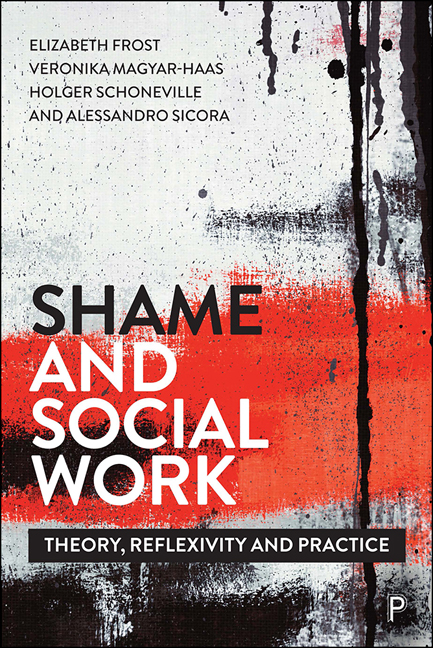4 - Poverty as an Attack on Subjectivity: The Case of Shame
Published online by Cambridge University Press: 10 March 2021
Summary
A social work perspective
Poverty has always been an important topic for social work and social policy and its relevance cannot be overestimated. The question therefore does not seem to be whether an analysis of poverty is necessary for social policy as a whole or social work in particular, but on what such an analysis is actually focused and through which theoretical framework it is informed. While the term poverty might seem self-explanatory and associations of what it describes might come to mind quickly, the debate about poverty analysis and theoretical perspectives on poverty reveals a variety of different approaches and perspectives: it can, for example, be analysed in purely economic terms through the description of a single variable, for example the distribution of household incomes. It can also be analysed in a more multidimensional way, by focusing on different parts of a person's living situation (such as employment, housing, education, health and so on). The same is true for the explanation of the phenomenon of poverty and social exclusion: while structuralist approaches are capable of explaining the relevance and embeddedness of the phenomenon for the whole society, praxis analytical perspectives are able to explain the reproduction of inequality in its practical, everyday production of differences. These are just a few examples of perspectives on and explanations of poverty that are extremely informative for social policy. They, and the findings they provide, can be understood as part of the foundation of social work knowledge. But they do not constitute a social work perspective.
A social work perspective needs to be – and this is my argument – able to describe, analyse and explain the meaning of poverty for the individual. At the core of a social work perspective on poverty lie the terms ‘subject’ and ‘subjectivity’. It must be capable of analysing, describing and explaining the meaning of the social structure, which is reproduced in actions and institutions, for the individual and their capability to form meaningful self-and world relationships. With the term subjectivity, not only the promises of modernity, like individual freedom, autonomy and dignity, become part of the account, but also their endangerment and the possibility that the subject could be disrespected.
- Type
- Chapter
- Information
- Shame and Social WorkTheory, Reflexivity and Practice, pp. 81 - 98Publisher: Bristol University PressPrint publication year: 2020

